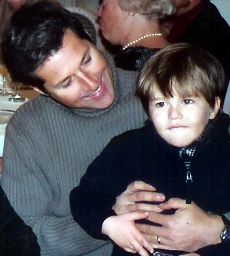U.S.-Brazil Custody Case Reaches Highest Levels of Obama Administration
By Eduardo A. de Oliveira, EthnicNEWz.org and Feet In 2 Worlds contributor
The ingredients were typical of a soap opera: a handsome American male model falls for a Brazilian fashion student. The couple met in Milan, Italy. From the love of David Goldman and Bruna Ribeiro resulted a happy wedding, a peaceful marriage, and life in New Jersey with their baby boy, Sean.
But the dream of a beautiful family went awry, resulting in an international custody battle that has strained ties between two friendly nations — even prompting an intervention by Secretary of State Hillary Clinton.
In 2004, Ribeiro brought 4-year-old Sean to spend 15 days in Rio de Janeiro. Goldman would join them a few days later. But as soon as she landed in the “Marvelous City,” the mother called David and said she was not returning to the United States. Goldman’s nightmare started when his wife told him that if he ever wanted to see Sean again, he would have to assign sole custody of the boy to her.
Since that phone call, Goldman has fought to have the right to visit his son in Brazil. Meanwhile, Ribeiro married an influential and politically well-connected lawyer, João Paulo Lins e Silva — although in the U.S. her marriage to Goldman was still valid.
In August 2008, the couple’s story took a dramatic turn. After giving birth to a baby girl, Bruna Ribeiro Lins e Silva died of complications from the birth. Although tragic, the events gave Goldman renewed hope that, as the only blood-relative to Sean, he would finally be reunited with him.



 opes by killing the Immigration Reform bill.
opes by killing the Immigration Reform bill.


